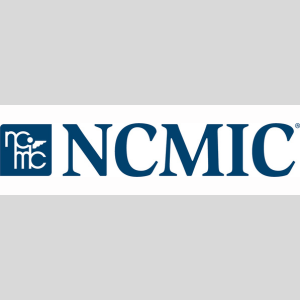MEMBER SERVICES
COVID-19 Resources for All Chiropractors
- HR liability around COVID-19
- Practice and insurance related issues
- CDC guidelines and your how to run your practice
- Unemployment considerations
- How to keep your practice open and stay compliant
- Understanding compliance with Emergency FMLA and Sick Leave
Webinars
Keeping Your Office Open
Resources for Doctors
- Continuing Education
March 27, 2020
On March 22, 2020, Governor Kim Reynolds issued a Proclamation of Emergency Disaster. In this Proclamation, Governor Reynolds temporarily suspended a number of regulatory provisions applicable to a number of professions, including those professions regulated by the Board of Chiropractic. The Proclamation eases administrative rules relating to renewal of licenses, continuing education, and background checks. The suspension of rules identified in the
Proclamation is effective through April 16, 2020, unless the Governor terminates or extends the Proclamation.
As required in the Proclamation, the Board of Chiropractic issues this guidance relating to the temporary suspension of administrative rules in these areas:
License Renewal
Your license is not scheduled to expire until June 30, 2020. The Board does not anticipate the Proclamation having an impact on your license renewal. In the event the Proclamation is extended in a manner that does impact your license renewal, the Board will send additional information at that time.
Continuing Education
Any Board rules that require you to complete any continuing education in-person are waived for the next license renewal.
To the extent possible, you are encouraged to take distance education courses and try to meet all continuing education requirements in accordance with your renewal deadline. There is currently no limit on the number of continuing education hours that may be obtained through distance education.
The guidance may be found here .
As a reminder, Mandatory Reporting CE requirements can only be taken through the Department of Human Services Mandatory Reporter Information. ICS offers online CE opportunities for many courses and also offers the required hours for Iowa Code and Professional Boundaries. Please refer to the links found under the EDUCATION tab .
Due to the cancellation of the 2020 ICS Annual Convention, ICS is considering additional options for online continuing education opportunities. Stay tuned and connected to ICS!
- Financial Resources
CARES Act
Congress has passed the CARES Act that provides billions of dollars for Iowa hospitals, businesses, workers, and farmers – and authorizes direct payments to Iowans.
The programs and initiatives in the Coronavirus Aid, Relief, and Economic Security (CARES) Act that was just passed by Congress are intended to assist business owners with whatever needs they have right now. When implemented, there will be many new resources available for small businesses, as well as certain non-profits and other employers. The guide below provides information about the major programs and initiatives that will soon be available from the Small Business Administration (SBA) to address these needs, as well as some additional tax provisions that are outside the scope of SBA.
To keep up to date on when these programs become available, please stay in contact with your local Small Business Administration (SBA) District Office, which you can locate here.
Struggling to get started? The following questions might help point you in the right direction. Do you need:
Capital to cover the cost of retaining employees? Then the Paycheck Protection Program might be right for you.
A quick infusion of a smaller amount of cash to cover you right now? You might want to look into an Emergency Economic Injury Grant.
To ease your fears about keeping up with payments on your current or potential SBA loan? The Small Business Debt Relief Program could help.
Just some quality, free counseling to help you navigate this uncertain economic time? The resource partners might be your best bet.
Paycheck Protection Plan (7A)
With the CARES Act being passed, there are a few programs that chiropractors could take advantage of such as the Paycheck Protection Program (PPP). These programs are loans which do have loan forgiveness provisions within them. The program has just been released but you will need to do the following to apply:
- Qualify - Use the relief guide and the PPP calculator to calculate your potential loan amount. For the PPP it is around 250% of your average monthly payroll. View our recorded webinar to learn which entities are eligible and how to calculate your total amount.
- Get Organized – Organize and make sure you have digital copies of your corporate resolutions, financials and payroll records. You will need these to submit your application.
- Relationship with your Lender – Remember these are loans you will procure from a qualified lender, most likely your bank or credit union. Reach out now to make sure your lender can do these types of loans and make sure you understand the process.
Economic Injury Disaster Loan Program (7B)
Small business owners in all U.S. states and territories are currently eligible to apply for a low-interest loan due to Coronavirus (COVID-19). Click here to apply.
Find more information on the SBA’s Economic Injury Disaster Loans at: SBA.gov/Disaster.
The SBA will work directly with state Governors to provide targeted, low-interest loans to small businesses and non-profits that have been severely impacted by the Coronavirus (COVID-19). The SBA’s Economic Injury Disaster Loan program provides small businesses with working capital loans of up to $2 million that can provide vital economic support to small businesses to help overcome the temporary loss of revenue they are experiencing.
- Policies To Keep Your Office Open
The CDC presented a one-hour live webinar for clinicians on March 5th. It is now available at no cost on-demand here. The presenters reported on important updates, including recommendations for office protocols for control of the spread of the virus. The experts recommend similar protocols for other infectious diseases, such as influenza. Aside from the obvious standards for the physical facility and staff (sanitizing surfaces, handwashing, etc.), if a patient presents to the office with symptoms, the patient should be separated from others in the waiting area and masked to prevent the spread of droplets.
The CDC also discussed how to determine which patients to refer for testing. CDC recommends using professional judgment to assess the presence of the following factors in presenting patients:
Epidemiological factors such as being in close contact with a diagnosed patient or having been in an area of known community transmission.
Symptoms including:
- Fever
- Acute respiratory illness – cough, shortness of breath, difficulty breathing
- Myalgia
- Fatigue
- Persons over 65 years of age
- Persons with underlying conditions and comorbidities
Physicians are to use their best judgment in assessing patients and refer those for testing as appropriate. Due to the general scarcity of testing kits, the CDC currently recommends that physicians should refer “persons under investigation” (PUI) to state and local public health laboratories in their areas. Additionally, the CDC states that “Healthcare providers should immediately notify their local or state health department in the event of a PUI for COVID-19.”
There has been a concern across the country regarding the availability or non-availability of testing kits. Of course, the availability or non-availability of testing kits should not change physician office protocols for identifying and handling of possibly exposed or infected persons. In any event, we encourage physician offices to review CDC information daily for updates to their recommendations for in-office procedures. In addition to evaluating symptomatic patients, many physicians are choosing to screen all patients by asking at each visit if patients fall into any of the following categories per CDC:
Recently returned from international travel or from a cruise
Have interacted with an infected person
Older adults
People who have serious chronic medical illnesses such as; heart disease, diabetes, lung disease
https://www.cdc.gov/coronavirus/2019-ncov/specific-groups/high-risk-complications.html
It may be appropriate for some asymptomatic patients to be referred for testing if they have been in close contact with an infected person and/or are positive for some of the other factors (age and comorbidities).
- Additional Resources
Guidance for Businesses and Organizations:
ChiroArmor Hand Hygiene Policy
ChiroArmor Infection Control Policy
Appointments: COVID-19 Phone Screening
NCMIC Insurance Company COVID-19 Information
Iowa Department of Public Health Business Guidance
Iowa Department of Public Health FAQ for Businesses
Updates from the Centers for Disease Control and Prevention
Davis Brown Law Firm Legal Guidance For Employers
Board Recommended Links:
World Federation of Chiropractic Coronavirus PDF
American Chiropractic Association Coronavirus Information
International Chiropractic Association Coronavirus Information



